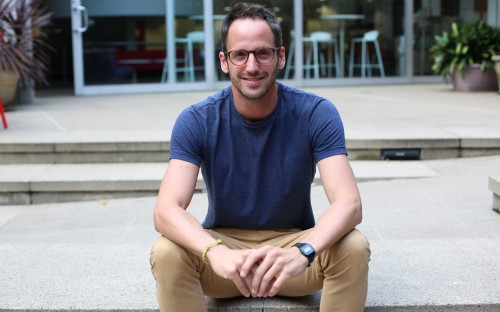Across Europe, Deliveroo drivers have protested over their employment conditions—the flexibility that comes with on-demand means instability too.
Pablo Quintero founded his first business—Fishgig—to empower the on-demand workforce, helping workers maximize their returns; earning more for the jobs they want to do.
Launched out of UNSW Innovations—the University of New South Wales’ (UNSW) innovation and entrepreneurship office—Fishgig allows on-demand economy workers compare the rates of sharing economy platforms—like Uber and Deliveroo—at any given time, in a city of their choice.
Pablo came up with the idea for his business during a full-time MBA at the university’s Australian Graduate School of Management (AGSM@UNSW).
FishGig won first prize at UNSW Ideathon 2015. In the last six months, Pablo’s business has gone through two startup incubator programs at UNSW Innovations, attracted over 250 users and closed partnerships with 18 platforms, including big players like Deliveroo and UberEATS.
How did the idea for FishGig come about?
Right after finishing my MBA, I needed extra income and decided to work as a delivery rider with Deliveroo. After some weeks, it was very clear to me that the on-demand economy was highly inefficient for both sides; the workers and the platforms. For the workers because, on average, 40% of their time is wasted waiting for orders (they get paid by order, not by hour). For the platforms, because they have a very high churn and turnover and spend tens of thousands of dollars to on-board and retain workers.
What do you hope to achieve?
Our mission is to bring efficiency into the on-demand economy by connecting on-demand workers and platforms. We help on-demand workers know opportunity and maximize their earnings, and we help platforms increase their exposure and reduce on-boarding costs. In the future, we believe FishGig will play a key role in the on-demand economy worldwide.
What advice do you have for MBAs looking to start their own business?
If you don’t have an idea but feel attracted by the startup ecosystem, reach out to any startup and offer to work some hours a week while you are studying; you will soon realize if this world is for you or not.
Today, it’s easier than ever to validate your idea given the open source learning, free online tools and fast access to people. So, if you already have an idea, just go for it!
Consider time as your most valuable asset. I believe that the only way to survive as an early founder, when you have very limited resources and no capital, is by learning faster than anyone else. So maximize your time by making sure every effort contributes directly to the learning you seek.
Why did you decide to pursue an MBA at AGSM?
I wanted to enter a top-50 global MBA program. My previous job was ending in November and I didn’t want to wait 10 months to start the MBA (AGSM starts in January).
I lived for three months in Sydney two years back, and after that I knew it was the perfect place for me: a beautiful city, close to the sea, and with a great lifestyle.
Would you be where you are today without the AGSM MBA?
I can categorically say that without the help of the UNSW Innovations team, FishGig wouldn’t have seen the light, and wouldn’t have become what it is today.
AGSM has recently put entrepreneurship as a core course of the full-time MBA program, which I find fantastic. I think the school has a great potential to tap into the startup community beyond the classroom, becoming the catalyst between MBA students, alumni, startups and corporates too.
RECAPTHA :
81
bd
f2
6b








